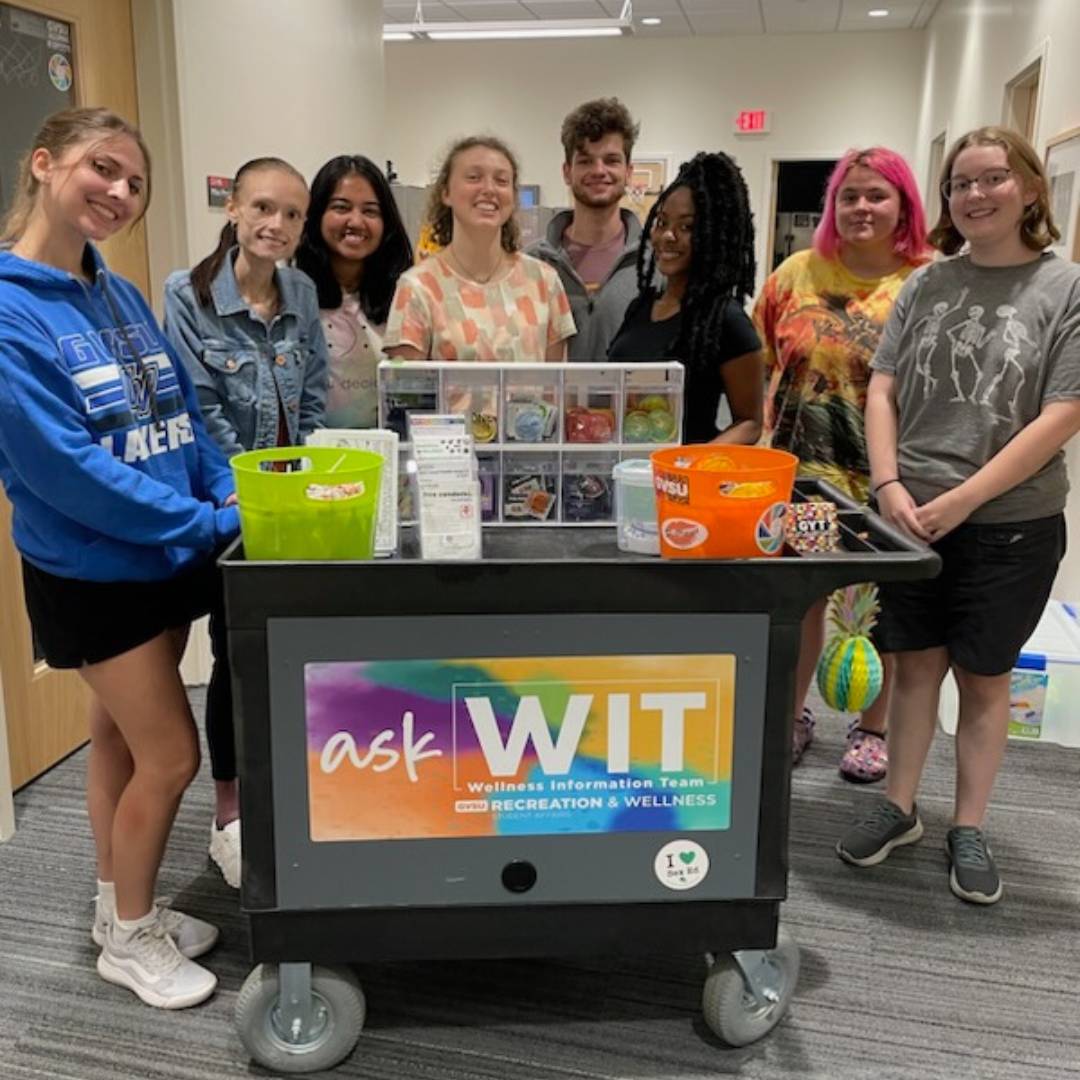Ask WIT

Welcome to our Ask WIT questions and answers! Below you will find questions submitted by fellow GVSU students that have been answered by the Wellness Information Team (WIT) Peer Educators. We have categorized them into general wellness, sexual health and nutrition.
Have a question for WIT Peer Educators? Fill out the Ask WIT form anonymously and find your answer here in 3-5 days.
Or, you can find them out with the Ask WIT cart each week on the Allendale and Pew campuses. Follow @gvsurecwell on Instagram to see when they're out and about.
General Wellness
There are not any at this time
Sexual Health
There are not any at this time
Nutrition
There are not any at this time
*Please note that submitted questions will be reviewed by Health Promotion staff members and may be edited or denied if the question is defamatory or obscene, causes panic, uses fighting or threatening words, incites crime or demeans or harasses another individual or institution.
**Ask WIT is an educational service only. We do not provide health recommendations. The information provided is for general educational purposes only, and is not intended to substitute for the advice of health care professionals. If you need specific health recommendations, please consult an appropriate professional. Any third-party resources are provided as a convenience for informational purposes only. Neither Grand Valley State University or its Center for Health and Well-being endorses or approves any of the products, services or opinions of the entities or individuals associated with these links. Grand Valley State University and Center for Health and Well-being bear no responsibility for the accuracy, legality or content of any external site associated with the links provided or any subsequent links.
